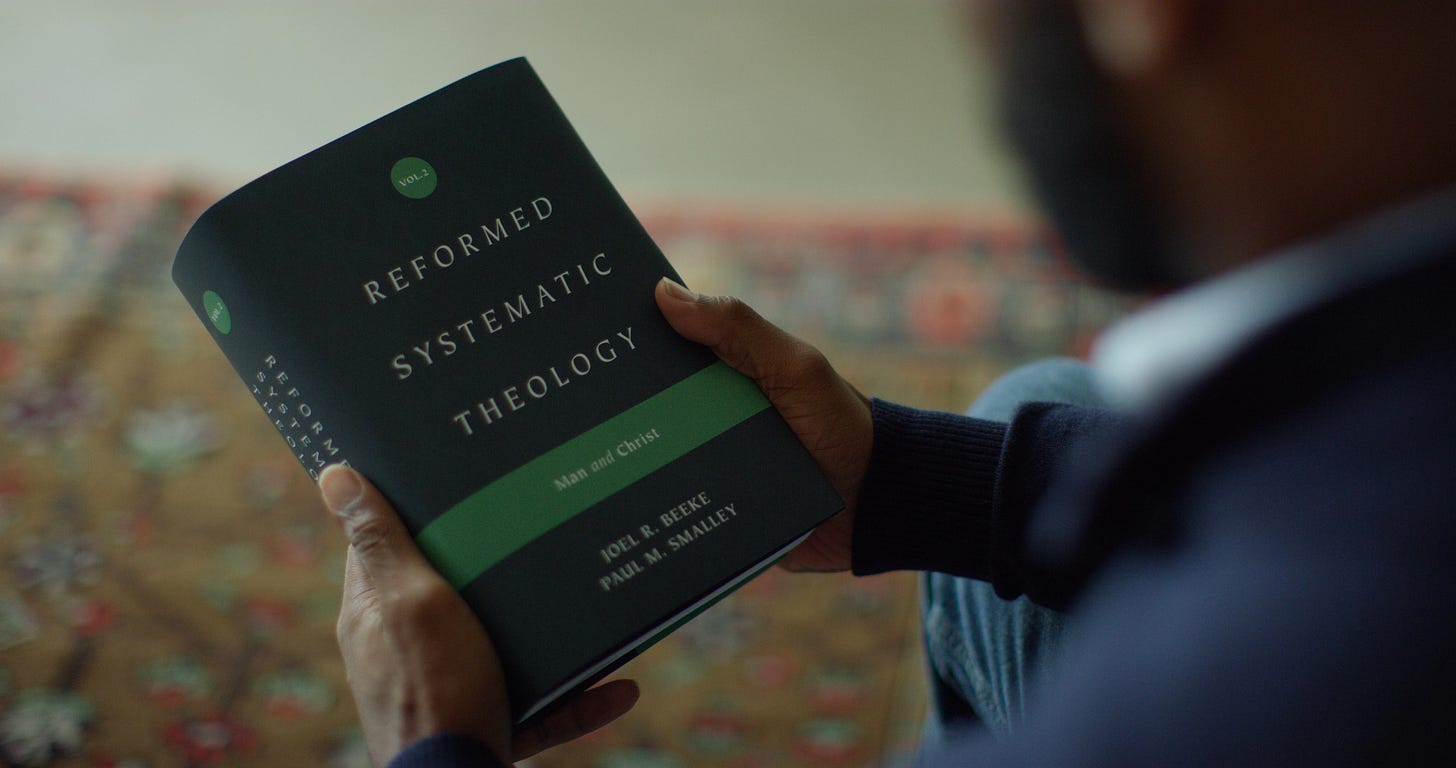Reformed Orthodoxy on Original Sin
Joel Beeke & Paul Smalley
The Reformed churches responded to the teachings of Arminius’s followers at the Synod of Dort (1618–1619). The Canons of Dort (Head 3/4, Art. 1–2) teach that with the sole exception of Christ, all men “have derived corruption from their original parent,” which includes “blindness of mind, horrible darkness, vanity and perverseness of judgment,” so that man has become “wicked, rebellious, and obdurate in heart and will, and impure in his affections.”1 The “unregenerate man” is “utterly dead in sin” and “destitute of all powers unto spiritual good.”2 Original sin “by itself suffices to condemn the whole human race.”3 When some people reject the gospel, “the fault lies in themselves,” but when others hear the gospel and are converted, it “is not to be ascribed to the proper exercise of free will, whereby one distinguishes himself above others, equally furnished with grace sufficient for faith … but it must be wholly ascribed to God, who … has chosen His own from eternity in Christ.”4 Conversion is a “resurrection from the dead” and is not in the power of man to take or reject.5
The Westminster Confession of Faith (6.2–4) likewise says that Adam and Eve, by their disobedience to God’s prohibition, “fell from their original righteousness and communion, with God, and so became dead in sin, and wholly defiled in all the faculties and parts of soul and body.” Consequently, “they being the root of all mankind, the guilt of this sin was imputed; and the same death in sin, and corrupted nature, conveyed to all their posterity descending from them by ordinary generation.” These words presuppose that Adam’s headship over mankind is both natural (“root … generation”) and legal (“guilt … imputed”).6 The Westminster divines said, “From this original corruption, whereby we are utterly indisposed, disabled, and made opposite to all good, and wholly inclined to all evil, do proceed all actual transgressions.”7 Adam’s sin “brought mankind into an estate of sin and misery” because “the covenant being made with Adam, not only for himself but for his posterity, all mankind, descending from him by ordinary generation, sinned in him, and fell with him, in his first transgression.”8
The Formula Consensus Helvetica (Canon 10) says,
The sin of Adam is imputed by the mysterious and just judgment of God to all his posterity. For the Apostle testifies that “in Adam all sinned, by one man’s disobedience many were made sinners” (Rom 5:12, 19) and “in Adam all die” (1 Cor 15:21–22). But there appears no way in which hereditary corruption could fall, as a spiritual death, upon the whole human race by the just judgment of God, unless some sin of that race preceded, incurring the penalty of that death. For God, the most supreme Judge of all the earth, punishes none but the guilty.9
Beeke, Joel R., and Paul M. Smalley. 2020. Reformed Systematic Theology: Man and Christ. Vol. 2. Wheaton, IL: Crossway.
The Three Forms of Unity, 140.
Canons of Dort (Head 3/4, Rej. 4), in The Three Forms of Unity, 149.
Canons of Dort (Head 3/4, Rej. 1), in The Three Forms of Unity, 148.
Canons of Dort (Head 3/4, Art. 9–10), in The Three Forms of Unity, 143.
Canons of Dort (Head 3/4, Art. 12), in The Three Forms of Unity, 145. See 3/4.r8 (152).
See Westminster Shorter Catechism (Q. 16), in Reformed Confessions, 4:355. On the debate in nineteenth-century American Presbyterianism over the nature of Adam’s headship, see George P. Hutchinson, The Problem of Original Sin in American Presbyterian Theology (Nutley, NJ: Presbyterian and Reformed, 1972).
Westminster Confession of Faith (6.4), in Reformed Confessions, 4:241–42.
Westminster Shorter Catechism (Q. 16–17), in Reformed Confessions, 4:355.
Reformed Confessions, 4:523. This is an explanation of “in consequence of the just judgment of God” in the Canons of Dort (Head 3/4, Art. 2), in Reformed Confessions, 4:135.

